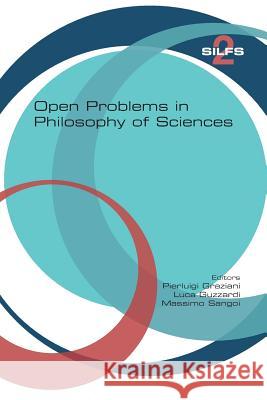Open Problems in Philosophy of Sciences » książka
Open Problems in Philosophy of Sciences
ISBN-13: 9781848900622 / Angielski / Miękka / 2013 / 270 str.
This volume presents philosophy of science at its best, i.e. as a philosophical questioning informed by current scientific research, which carefully assesses and evaluates its commitments and consequences. As such it represents philosophy simpliciter at its best, for it is concerned with and dares to ask fundamental questions about the nature of the results of the natural sciences, arguably our most reliable sources of knowledge of the world. The contributions collected in this volume make clear that a philosophy that is disconnected from science is sterile and that the practice of science that is disconnected from a philosophical attempt to understand the natural world in its most general features is blind. Throughout the book we are confronted with questions about the nature of species, numbers, space, time, matter, consciousness and so on. Taking seriously these questions, along with other open problems in philosophy of sciences, and keeping the dialogue between science and philosophy wide open, is likely to be our best bet for a deeper understanding of what surrounds us. The book has a further, deeply important merit. Being the result of a post-graduate conference, it brings together not only leading, long established experts in the field but also new, young researchers, who usually find too small a place within the academic environment. Promoting exactly this kind of interaction is an essential step in constructing a new paradigm for an open, collaborative and fruitful scientific community.
This volume presents philosophy of science at its best, i.e. as a philosophical questioning informed by current scientific research, which carefully assesses and evaluates its commitments and consequences. As such it represents philosophy simpliciter at its best, for it is concerned with and dares to ask fundamental questions about the nature of the results of the natural sciences, arguably our most reliable sources of knowledge of the world. The contributions collected in this volume make clear that a philosophy that is disconnected from science is sterile and that the practice of science that is disconnected from a philosophical attempt to understand the natural world in its most general features is blind. Throughout the book we are confronted with questions about the nature of species, numbers, space, time, matter, consciousness and so on. Taking seriously these questions, along with other open problems in philosophy of sciences, and keeping the dialogue between science and philosophy wide open, is likely to be our best bet for a deeper understanding of what surrounds us. The book has a further, deeply important merit. Being the result of a post-graduate conference, it brings together not only leading, long established experts in the field but also new, young researchers, who usually find too small a place within the academic environment. Promoting exactly this kind of interaction is an essential step in constructing a new paradigm for an open, collaborative and fruitful scientific community.











